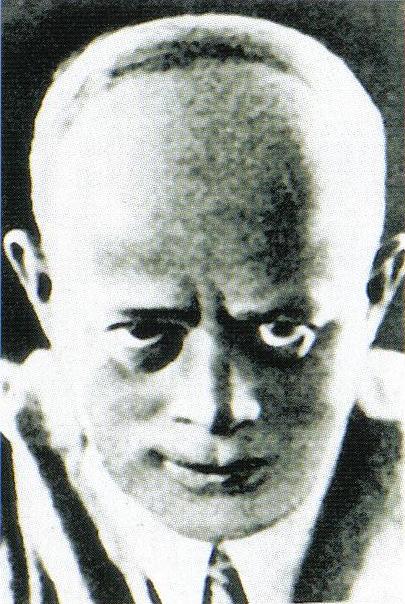Katzenelson was a distinguished teacher, Hebrew and Yiddish poet, and dramatist, born in Karelitz, near Minsk, Belarus. During the Second World War, he was trapped in the Warsaw Ghetto. After the uprising he escaped but was arrested by the Germans and sent to the concentration camp of Vittel and from there to Auschwitz. He was the ideologist of the Warsaw Ghetto Uprising and a memorialist of the Holocaust in his writings: The Song of the Murdered Jewish People and the Vittel Diary. Katzenelson’s writings were hidden by members of the Dror youth movement in various places in the Warsaw ghetto. After the liberation, they were recovered in 1947 and sent to Israel to Kibbutz Loḥamei Ha-Getaot (‘Ghetto Fighters Kibbutz’). They were edited and published by Yechiel Szeintuch.
In 1931 Katzenelson published a Hebrew drama ‘Among the Shepherds: a Night in the Environs of Jerusalem’ that was later translated into Yiddish, expanded, and presented in the Warsaw Ghetto (1941) under the title Arum Yerushalaim. The drama presents the encounter, through a medium, of a group of ḥalutzim with heroes of Jewish history: King Saul, Daniel, Josephus, and Shlomo Molkho. In this encounter Katzenelson raised the issue of the relationship between the Zionist movement and Jewish history, with central questions concerning the character of Josephus: Was he really a traitor and what did his books contribute to Jewish history? One of the main messages of the play is the importance of maintaining a Jewish language and Jewish traditions for survival as a nation. In his dramatic dialogue, Katzenelson shows extensive knowledge of the writings of Josephus, alongside the Bible and rabbinic literature. His main message is to highlight the importance of written evidence and the justification of the rebellion. This drama, intended for presentation in the Ghetto, also reveals the audience’s acquaintance with Josephus’s works and their relevance in those terrifying hours of daily life. Katzenelson calls Josephus’ writings ‘seforim’, Hebrew for sacred books in the Jewish tradition, as opposed to the plain Yiddish word for books, ‘Bicher’, and makes it clear that despite having been banned for centuries, they became an integral part of the sacred canon of the Jewish people.
Katzenelson, Y., ‘Among the Shepherds: a Night in the Environs of Jerusalem’, Aḥduth Ha‘avodah 13–14 (1931): 53–73 [Hebrew].
Katzenelson, Y., Yiddish Ghetto Writings: Warsaw 1940–1943, ed. from rescued manuscripts with introductions and explanations by Yechiel Szeintuch. Loḥamei Hagetaot, 1984 [Yiddish].
Szeintuch, Y., ‘The Work of Yitzḥak Katzenelson in the Warsaw Ghetto’, Jerusalem Quarterly 26 (1983): 46–74.
Szeintuch, Y., ‘The Hebrew Play “The Shepherds” and the Textual Changes and Their Meaning in the [Yiddish] Translation’, in: Yitzḥak Katzenelson’s Rescued Manuscripts: From the Warsaw Ghetto and the Vittel Concentration Camp. Jerusalem, 1990: 128–40 [Hebrew].
Sznol, S., ‘Reading and Interpreting Flavius Josephus in the Vilna and Warsaw Ghettos (1941–1943)’, in: Josephus in Modern Jewish Culture, ed. A. Schatz (forthcoming).
Tsur, M. ed., Sad Wind: In the Footsteps of Itzḥak Katzenelson. Tel Aviv, 2012 [Hebrew].
JRA entry contributed by Shifra Sznol
